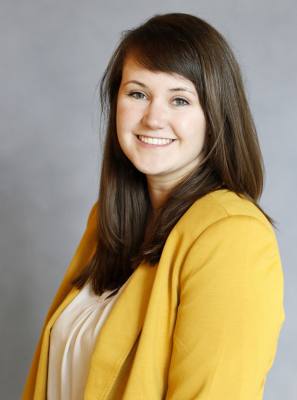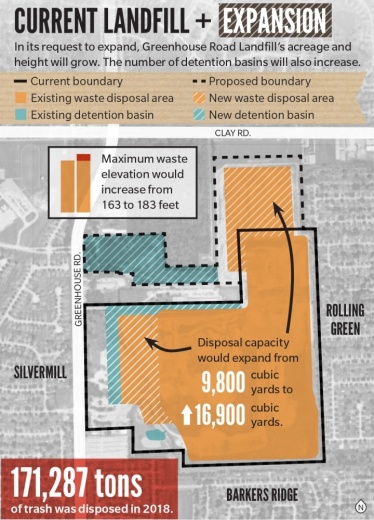The Texas Commission on Environmental Quality commissioners voted 3-0 at the March 4 regular meeting to grant Harris County and nine individuals their requests for a contested case hearing regarding Greenhouse Road Landfill’s permit application to expand the landfill—located at 3510 Greenhouse Road, Houston—by 32 acres and increase the landfill’s height by 20 feet.
A contested case hearing is a legal proceeding conducted by the State Office of Administrative Hearings to review the permit application and hear arguments for and against the expansion, according to the TCEQ. A date for the Greenhouse Road Landfill contested case hearing was not discussed at the March 4 meeting. However, the commissioners' motion—read by Commissioner Bobby Janecka—stated the maximum duration of the hearing is 180 days from the preliminary hearing to the issuance of the proposal for decision.
After the contested case hearing, the SOAH will recommend denying, approving or modifying the permit to expand, but the TCEQ commissioners do not have to follow the suggestion when they take up the permit again during a regular meeting.
At the March 4 meeting, the commissioners also approved the issues that will be discussed at the contested care hearing. To be considered, issues must be raised in a timely manner by an affected person and be within the TCEQ’s jurisdiction, TCEQ Chair Jon Niermann said.
“So for example, we cannot consider economic impacts such as effects on property values, or determine compliance with third-party agreements,” he said. "Noise is not within our jurisdiction on this type of application. ... That said, there are numerous issues that are relevant, and material and that should be referred [to the SOAH for a contested case hearing].”
Since Greenhouse Road Landfill LP, an affiliate of G.O. Weiss Inc., applied for a permit amendment in November 2016 to expand, many residents, business owners, officials and organizations have expressed opposition. They cited drainage, health and property value concerns among nearly 600 comments submitted to the TCEQ regarding the expansion project.
The approved issues for the contested case hearing included whether Greenhouse Landfill’s expansion plan:
- is compatible with surrounding land use;
- is protective of the health and welfare of the affected persons;
- has adequate measures to control surface water flow, drainage, dust and wind-blown waste;
- has adequate measures to prevent nuisance odors and to control vectors, such as vermin;
- has adequate measures to clean out public access roads and rights of way;
- has adequate measures to maintain the landfill cover, which is a layer of material laid on top of waste;
- meets applicable rules for collecting contaminated liquids and monitoring groundwater;
- provides the required traffic data and documentation;
- has adequate measures to detect and prevent the acceptance of unauthorized waste;
- has adequate measures to address personnel training requirements;
- addresses flooding and floodplain requirements adequately;
- complies with buffer zone requirements;
- complies with the applicable notice requirement; and
- provides required information on all known water wells within 500 feet of the proposed permit boundary.
At the March 4 meeting, the commissioners also denied requests for a reconsideration of the Sept. 20 TCEQ executive director’s decision that stated the landfill’s permit application to expand met the requirements of applicable law. Niermann explained the contested case hearing would be a more appropriate setting for residents’ concerns about the landfill.





